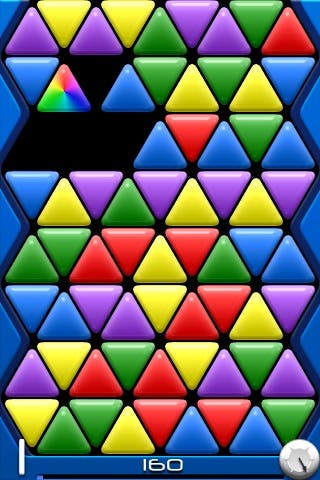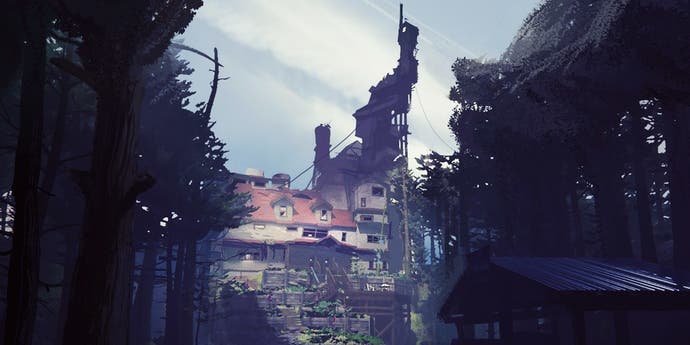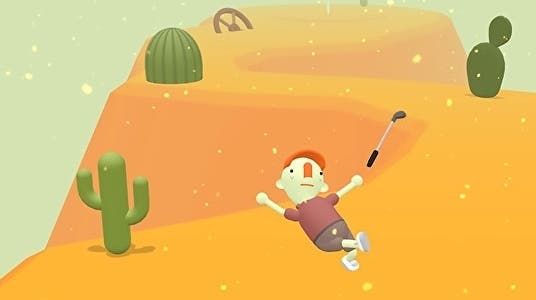Games on iOS definitely have a future, but what about their past?
The vanishing.
I downloaded a bit of history last night. Do you remember Trism? Trism is a sliding tile puzzler in which you group triangles together. In the first days of the App Store, it was one of the few games that made people think: oh, this could be something. Playing it today, it's still a lot of fun, although the handling is fussy and the UI creaks. That's the point, though: if you're playing Trism today you're after nostalgia as much as anything else, and the fussiness and creakiness are part of the appeal.
The wonderful thing about Trism is that you can still download it at all. It's still there on the App Store. I could not believe it when I saw it. In school my daughter is learning about Mary Anning and dinosaurs, lurking in the earth, waiting to be discovered again. On the sofa at night, here am I, and here is Trism, my very own dinosaur. I've been playing a lot of Apple Arcade this week, and I've been having a wonderful time. I've been transported, as only the best kind of games can transport you. I feel - I think a lot of us feel - a sense of the sheer potential of games again. I feel very good about the future of games on the App Store and Google Play - although I should add that for the last few years I have felt pretty good about it really. What I feel less good about is the App Store's past.

Back in 2012 I helped with a magazine feature about the top 50 iOS games to play. "Three years and hundreds of thousands of apps later, what are the best games on the App Store?" A few months ago - it may have been more like a year or so - I heard that my editors from that time were talking about the piece, and hunting back through the App Store to see how many of those games were still available. I think it was a bit of a bloodbath.
I tried to do the same thing this morning, but it got too depressing pretty quickly. So many great games are missing. It also got pretty confusing. So many great games have sequels, but no originals. So many have been retro-fitted with weird new systems that change the essential texture. So many are missing but replaced with a variety of clones and hop-ons, turning up in the search results in place of the real thing.
I don't know what is worse. A bunch of the 50 are still there, but so many have just gone - and gone completely. Do you remember No, Human? It was a game about flinging asteroids at space stations and it had lovely, jewel-like rocks to chuck around and a wonderful bit of inertia before they started to move. It's gone. Maybe it got tied up in publishing nonsense. Maybe the developer got tired of updating it for the changing specs of the iPhone itself. Maybe they just got bored. But then take something like Peggle. Peggle is royalty. Jimmy Lightning is royalty. Yet if you want Peggle today, you can't download the original, which you paid for upfront back in the day. You have to download Peggle Blast, which is a rotten, money-grabbing thing with horrible art.
I understand why games change and why they sometimes disappear. I understand why whole publishers and empires have vanished - NGMoco! I have not thought of that lot in an age. But it's still a real shame. Smartphone gaming has done incredible things for the industry at large, and not just because of the money people have made. It made designers think about how to engage with a device that was not made with games in mind, but which had all these super interesting and strange features. It made designers think about how to engage with an audience that was very different to the audience that games designers had often been thinking about in the past. When I look at the micro-transactions and the fudging of the new Mario Kart app, I roll my eyes and think: gah, mobile gaming. But when I think of Edith Finch, a game in which you explore a family's history by rooting through its rooms? Even though Edith Finch is not an iOS game, I should still think, ooh, mobile gaming, because mobile gaming played a crucial part in opening out the idea of what a game could be, and what kind of things it could busy itself with. Smartphone gaming made games so much richer and more varied. It put games in so many new peoples' hands too.

But then? In the old days when your game flopped you could tell yourself that it was still out there. There was a cartridge that could be plugged into ancient hardware and it would maybe still work. Or if it didn't, you could just put it on a shelf and enjoy the physical presence of it. But when iOS and Android games disappear, oh boy, they disappear. Maybe they leave a wisp of clones behind, like the Road-Runner cloud of dust left behind when the Road-Runner takes off. But often you don't even get that.
And in that disappearance is an awful bit of wrong-headed thinking. Thinking that says: smartphone games are throw-away things, they are not important and nobody will miss them. Thinking that says: these things are just products and don't need to be preserved.

